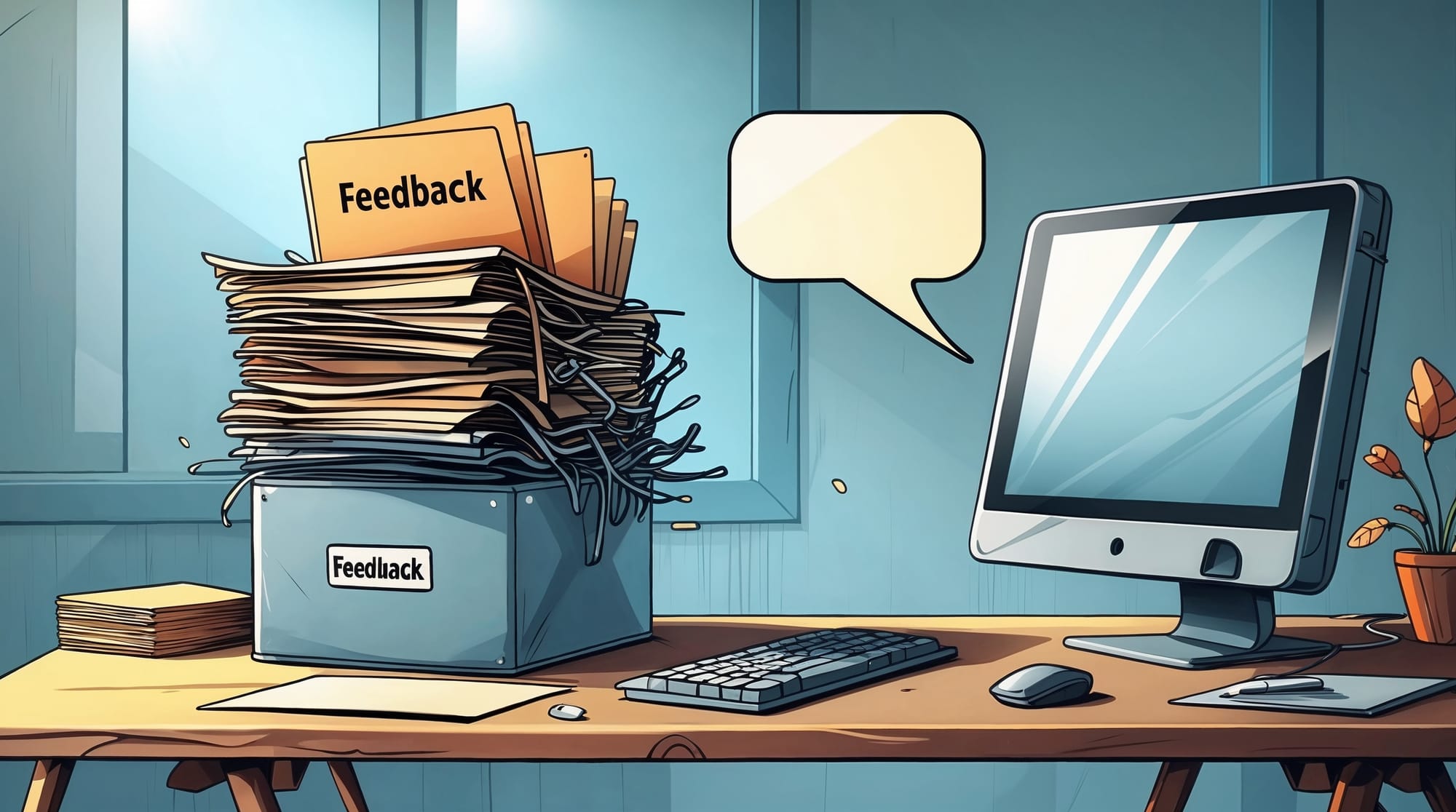"We Should've Talked Sooner" — The Quiet Cost of Delayed Feedback
A fellow team lead shared a story over beers: a senior developer blindsided by feedback in their quarterly review. "Why didn't anyone tell me this before?" The problem wasn't the feedback—it was the timing. Learn 4 micro-habits that make feedback feel normal instead of nerve-wracking.

A couple of weeks ago, over after-work beers, a fellow team lead shared a story that's been stuck in my head. One of his senior developers had just received their quarterly review—two pages of feedback about communication issues, missed context in code reviews, and team alignment problems. The developer's response? "Why didn't anyone tell me this before?"
"That's when I realized," my colleague said, swirling his beer, "this wasn't really about the developer. This was about us—about a team that had spent three months collecting grievances instead of having conversations."
There's a particular kind of silence that creeps into teams. Not the productive, heads-down kind where great work happens. It's the quiet that fills the space where a conversation should've occurred but didn't. And by the time we finally speak up, what could have been guidance becomes a verdict.
The Real Cost of Waiting
Here's the uncomfortable truth: when feedback arrives as a surprise in a formal review, we've already failed. Not because the feedback itself is wrong, but because we've turned a coaching moment into damage control.
I've seen this pattern repeat across teams for years:
- Someone struggles with project planning for weeks, but we only mention it during their review
- A product manager keeps interrupting in team meetings, but nobody says anything until tensions explode
- A designer's prototypes consistently miss technical constraints, but we save that conversation for the "feedback session"
Each time we wait, we're not just delaying helpful information—we're compounding the problem.
The longer poor habits continue, the harder they become to change. More importantly, we're sending a signal that we either don't care enough to help in real-time, or we don't trust the person enough to handle direct conversation.
Making Feedback Feel Normal
The solution isn't more formal processes—it's building micro-habits that make feedback feel normal rather than nerve-wracking.
The 24-Hour Rule: If something significant happens in a meeting or collaboration, mention it within 24 hours. Not in a formal sit-down, just a quick "Hey, can I share something I noticed?" This keeps the context fresh and the stakes low.
Anchor to Specifics: Instead of storing up vague impressions, tie feedback to concrete moments.
- Rather than: "You need to communicate better"
- Try: "In yesterday's team meeting when you mentioned the API delay, walking us through the impact would have helped the team adjust our plans"
Lead with Intent: Start feedback conversations by clarifying your motivation. "I'm bringing this up because I want us to nail this project" or "I'm mentioning this because I think it could save you time in the future." This frames the conversation as collaboration, not criticism.
Make it Bidirectional: Ask for feedback at the same time you're giving it. "I noticed X in the meeting—how did you experience that moment?" This transforms feedback from a one-way critique into a shared problem-solving session.
Something You Can Try This Week
Here's something you can try this week: pick one person on your team and commit to giving them one piece of immediate feedback. Not saved up, not formal, just a real-time observation about something that could help them or the team.
Examples that work:
- If someone asks a clarifying question in a team meeting that prevents a misunderstanding, mention it right after: "That question you asked about the API dependency probably saved us a day of rework"
- If someone's code review comment is unclear, ask about it in the moment: "I'm not following this suggestion—can you elaborate?"
The goal isn't to become the feedback police. It's to normalize the flow of useful information when it's most valuable.
Building a Different Culture
Teams that master timely feedback share a common trait: they've made small course corrections feel safer than big confrontations. When feedback happens in real-time, it's usually small and manageable. When it gets delayed, it becomes large and overwhelming.
Last week, a project manager pulled me aside after a client call. "Your explanation of the technical constraints was really clear," she said. "The client seemed to relax once they understood the trade-offs." It took her fifteen seconds to say, but it gave me useful information I could use in the next client conversation.
That's the kind of feedback culture we're aiming for. Not more formal reviews or structured processes, but the everyday habit of helping each other see our blind spots while there's still time to adjust.
The next time you find yourself thinking, "I should probably mention something to them," don't wait for the perfect moment. Create it. A quick conversation today beats a difficult review next quarter.
Because the most expensive feedback is the kind that arrives too late to be useful.
